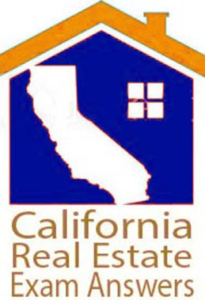Principles Chapter 2 Summary
The California Department of Real Estate
California Real Estate Principles
The Department of Real Estate (DRE) protects the public through the enforcement of laws and requirements for salespersons’ and brokers’ real estate licenses.
The California Real Estate Commissioner has the authority to investigate the actions of any person engaged in the business of a licensee in California, and has the power to deny, suspend or revoke the real estate license.
A person must be licensed to negotiate the sale, purchase or exchanges of real property; offer to lease or rent; solicit listings of real estate or prospective tenants; collect any sorts of payments regarding real property.
The only unlicensed person who may solicit for the sale of real property is the owner or his legal representatives. Others may be penalized under the law by acting as such.
A candidate for an original real estate salesperson license must be at least 18 years old, pass a written examination, and disclose any criminal violation or disciplinary action.
Applicants who seek to obtain a 4-year salesperson license must complete the college -level Real Estate Principles course, the Real Estate Practice course, and one additional required college- level course.
The applicant for an original real estate broker license must be at least 18 years old; actively engaged as a real estate salesperson for at least two years during the five years immediately preceding the application; have completed eight courses (five mandatory and three elective courses).
A mixture of education and experience different from the above MAY be deemed sufficient by the
Commission. One of the following must be submitted for the experience requirements:
Employment Verification (RE 226) to prove work as salesperson for at least two years.
Employment Certification (RE 228) to prove work as real estate broker in another state.
Equivalent Experience Verification (RE 227) – major or minor in real estate graduation from a four-year university course is an alternative for experience requirements.
All applicants must take and pass a written examination before the license can be granted.
A corporation may be licensed as a real estate broker, if one officer is a qualified real estate broker, who must submit a Corporation License Application and its fee.
Some corporations may do business under several fictitious business names (“dba”). Applications
for changes in name, salespersons and location must be officially submitted.
|
Applicants may apply and pay for the real estate broker or salesperson exami nation and license at the same time by submitting one application form and fee – submission of fingerprints is also mandate.
All renewal applicants, including salespersons, must complete a total of 45 hours of approved offerings within the four-year period immediately preceding license renewal.
If a broker’s license expires, all licensed activities of the broker must cease.
The license may be renewed within two years from expiration. Later than that, one needs to re – qualify through the examination process.
After a license is revoked, the person affected may not apply for reinstatement of the license until one year has passed.
The DRE may NOT issue or renew a full -term license if the applicant has not complied with a court order to provide child support payments.
Non-Working Status: a salesperson may hold a license, but NOT perform acts requiring a license. Licenses and examinations fees are not refundable. Fees vary.
For main offices located in California, the broker’s and salespersons licenses’ must be available for inspection and changes in the main office address must be forwarded in a written notice (the change may be corrected in the certificate itself). For branch offices in California, a license is required for each additional business location.
Both brokers and salespersons are required to maintain their mailing address of record on file at all times while licensed.
If a broker does NOT engage in licensed activities in California, the broker must file an Out of State Broker Acknowledgment (RE 235). Non -resident salespersons must be licensed with a California broker.
DRE Licensing must be notified in writing regarding transfers. W ithin 5 days, the salesperson and the new employing broker must complete RE 214 – Salesperson Change Application-
When a salesperson is terminated, the employing broker must immediately file a certified written statement of the facts with the DRE.
If a real estate broker license is revoked or suspended, the licenses of every real estate salesperson in the broker’s employ are automatically canceled. (They may transfer their licenses to a new employing broker).
|
A Prepaid Rental Listing Service License (PRLS) allows the licensee to collect for supplying a prospective tenant with a list of prospective rentals.
Sections 10176 and 10177 of the Business Professions Code constitute the foundation for most license suspensions or revocations.
The most important topics under these sections, which constitute the grounds for disciplinary action against a licensee:
Misrepresentation; continued misrepresentation;
False promise.
Dual Agency, or Divided Agency.
Violations of Code Section 10176:
Definite termination date.
Secret profit.
Listing-option.
Dishonest dealing
Signatures of prospective purchasers.
Violations under Section 10177:
Obtaining a license by fraud.
Convictions
False advertising.
Violations of other sections; Franchise Investment Law; Corporations Code; Securities
Law;
Misuse of trade name.
Conduct warranting denial.
Negligence or incompetence.
Supervision of salespersons.
Violating government trust.
Restricted license violation.
Inducement of panic selling.
|
The Real Estate General Fund is an account that holds all the money collected from license and exam fees, and is used for the operating expenses of the DRE.
1. 8% for the Real Estate Education and Research Fund
2. 12% for the Recovery Fund – regards the consumer victim of actions from real estate licensees.
For payment to be made, the judgment must be based upon intentional fraud; the licensee must have been properly licensed at the time of action; the applicant must file the application within one year of the final judgment.
Once the plaintiff files the payment application, the following regulations apply:
1. The DRE has 15 days to notify the applicant of any deficiencies in the application.
2. After the application is substantially complete, the DRE has 90 days within which to pay, compromise, or deny the claim.
3. If an application is denied, the applicant has 6 months within which to refile with the court
that rendered the judgment.
4. If payment is made, the license of the judgment debtor is automatically suspended until he has repaid the amount, plus interest.
A judgment debtor who filed a timely response may file a writ of mandamus to challenge the suspension of his or her license.
The maximum liability of the Recovery Account in any ONE transaction is $50,000.00, and the total series of judgments against any INDIVIDUAL licensee is limited to $250,000.00.

